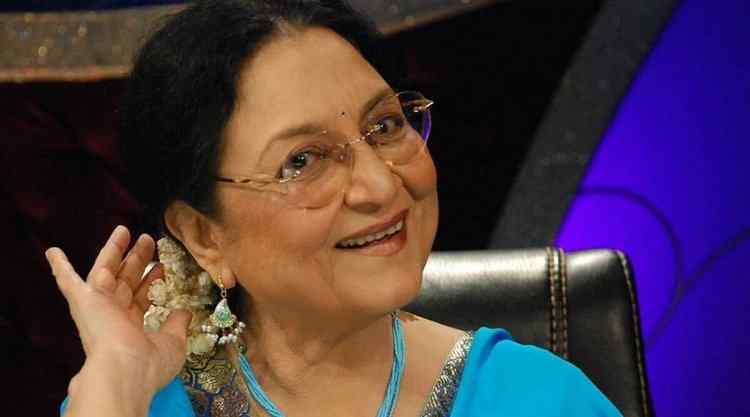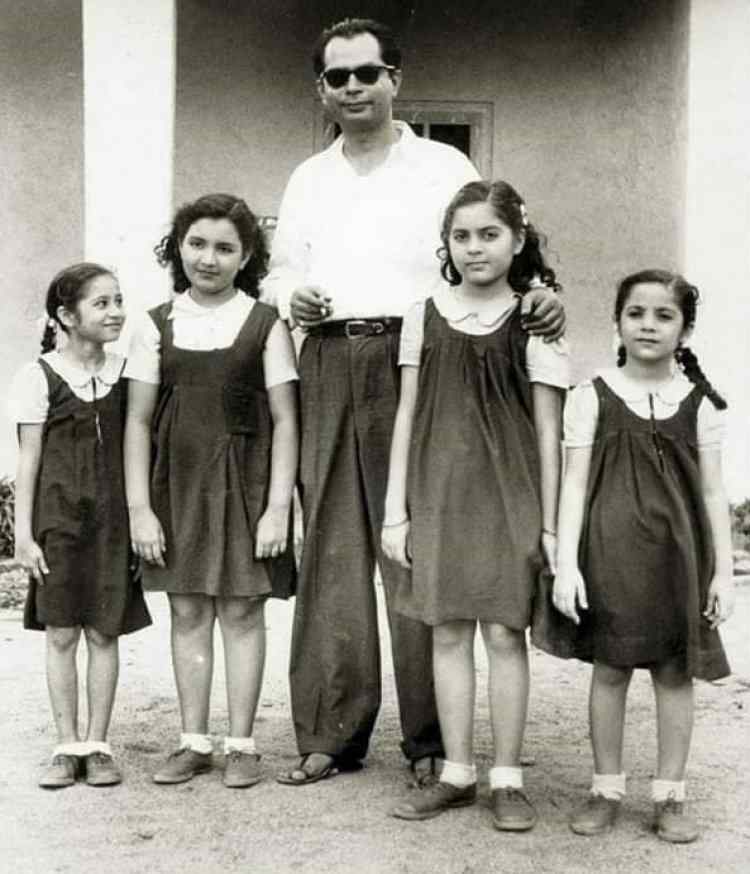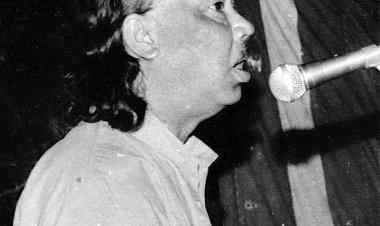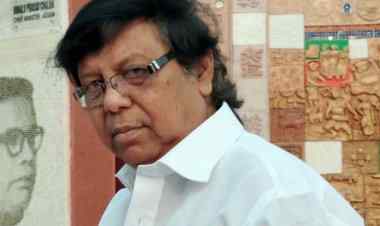A Tribute: Tabassum, Bimal Roy and Baap Beti
Shoma A. Chatterji writes, "Baap Beti unfortunately, does not have a single print surviving in the archive and has been completely lost to history. There are no small cuts from which the print can be retrieved even in part. This writer, thankfully, is one of the few people alive lucky enough to catch a theatrical screening of the film when it had a theatrical release. "

Tabassum passed away recently of a sudden attack in a Mumbai hospital at the age of 78. She was a multi-talented artiste who did not get the recognition she deserved. But that is how the film industry works. Many stalwarts are forgotten once they had faded from the limelight. Sadly however, she refused to fade from the limelight and found her identity anew through her very entertaining television weekly programme, Phool Khile Hai Gulshan Gulshan which became a rage during the B & W era with a mass audience following. She peppered her talk shows with celebrities from the tinsel world ages before Coffee With Karan was even conceived of. She anchored it pepped with her lovely chutkiyans (jokes) on which she later even wrote a book. Tabassum, born Kiran Bala, possessed the distinction of hosting the longest-running talk show – Phool Khile Hain Gulshan -- 1972-’93. When Phool Khile Hai Gulshan Gulshan pulled down the curtains, Tabassum began her own talk show called Tabassum Talkies on YouTube in which she alone narrated the back stories of stars, known and unknown, who stepped into films with colourful dreams but fell by the wayside or died a tragic death.
She became an overnight star when Deedar, in which she played the child version of Nargis and the film became a hit. She also played the child version of Meena Kumari in Baiju Bawra. But her debut came much before when she was barely three or four years old. One of her performances that is lost to time but is her most outstanding one till date is Bimal Roy’s Baap Beti in which she portrays the child protagonist.
Baap Beti unfortunately, does not have a single print surviving in the archive and has been completely lost to history. There are no small cuts from which the print can be retrieved even in part. This writer, thankfully, is one of the few people alive lucky enough to catch a theatrical screening of the film when it had a theatrical release. I was too small to understand much but could, for some reason, identify with the sad girl teased all the time by the girls in her class because she could not prove that she had a father. She was told by her mother, who died in a tragic car accident some time over the film, that her father had gone far away and would come back after his work was over. So Meena, the little girl, “created” a fictional father who wrote letters to her.

Image: Father-Daughter
The day letters arrive from home, there is great excitement & speculation. Most girls receive letters from both parents. Meena is taunted as no letters come from her father. Cornered by her class mates, Meena promises that her father’s letter will come. She appeals to her mother through a letter to tell her the father’s address so that she could write to him. Meena had never seen her father. Her mother said that he lived far away. Meena’s mother does not reply. Meanwhile, a few girls insult her, making her very sad. One evening, she sat in a secluded corner and wept her heart out. Biswanath Babu, the old school clerk hears of her problem and promises to help her. He writes letters pretending to be her father which Meena reads to the girls. This takes care of the situation – but not for long. When some particularly mean girls want to actually meet Meena’s father, things go out of control – until dame luck smiles on the fatherless girl. She suddenly finds a friend in a grown man and decides that he is her missing father, which is not true at all. This man is in trouble with this new “role” he finds tough to step out of. Ranjan, the action hero from the South was picked to portray the role. The bonding between this innocent, naughty girl full of pranks and this ‘fictitious’ father comes across beautifully.
The other merit of the film lay in the fights, arguments, pranks between and among the girls in the residential school where a few girls are constantly after Meena to present her father physically, while some others are solidly behind her. The school scenes are naturally captured in the interiors of Bimal Roy’s assistant’s home one hears. Tabassum, already an established child star in the industry, puts her everything into the role stripped of any star-like airs or mannerisms she might have developed over her experience.
This is the only film from the Bimal Roy house to be based on an internationally famous story a famous short story by French author Guy de Maupassant. This is perhaps the only film in which the director took the maximum liberties with the original short story called Simon’s Papa which was also made into a film. The original story was published in 1879. Simon, the shy, quiet son of local woman La Blanchotte, falls foul of the other boys' cruelty because he doesn't have a father. Soon he meets the local blacksmith, Philippe Rémy, who agrees to be his "father". La Blanchotte is a social outcast because she got pregnant out of marriage and in those days, this was considered blasphemy. Nabendu Ghosh and Bimal Roy put their heads together and reversed the role of the protagonist to a girl which gave the film a different texture altogether.
The cast of this film comprised of - Ranjan, Mridula, Nazir Hussain, Sunalini Devi, Anwar Hussain, Nana Palsikar, Baby Tabassum, Baby Naaz, Baby Sabita, Dolly Baby and Baby Asha Parekh. Among those little girls, Naaz and Asha Parekh turned stars in their own right. But while Naaz faded when she grew up to do adult roles, Asha Parekh who went back to school, bounced back at 16 with her return as one of the most successful leading ladies of the Hindi screen.
S. H. Munshi, a great fan of Bimal Roy, produced the film though he hardly had the funds to back the film. So, the film was shot on a shoe-string budget and the producer often ran out of funds so Roy had to shoot the film during the gaps while he shot his other two films at the same time. Though Roshan scored the music and the screenplay was by Nabendu Ghosh, the film turned out to be Bimal Roy’s biggest commercial flop and the film was lost to history forever. This, in this writer’s opinion, was the most outstanding performance of Baby Tabassum who never went to college but was erudite as her reading was wide and deep. Her millions of fans will take some time to accept that she will no longer be visible on her YouTube talk.
***
About the author: (Dr.) Shoma A.Chatterji is an Indian film scholar and author based in Kolkata.
What's Your Reaction?
































































